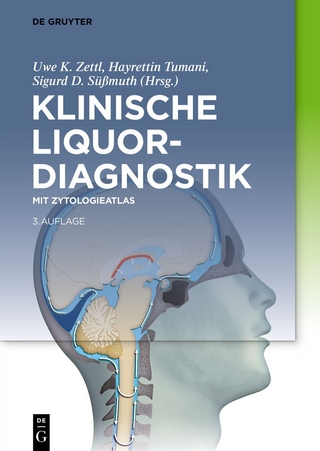
Resilient Health Care
Ashgate Publishing Limited (Verlag)
978-1-4094-6978-0 (ISBN)
Health care is everywhere under tremendous pressure with regard to efficiency, safety, and economic viability - to say nothing of having to meet various political agendas - and has responded by eagerly adopting techniques that have been useful in other industries, such as quality management, lean production, and high reliability. This has on the whole been met with limited success because health care as a non-trivial and multifaceted system differs significantly from most traditional industries. In order to allow health care systems to perform as expected and required, it is necessary to have concepts and methods that are able to cope with this complexity. Resilience engineering provides that capacity because its focus is on a system’s overall ability to sustain required operations under both expected and unexpected conditions rather than on individual features or qualities. Resilience engineering’s unique approach emphasises the usefulness of performance variability, and that successes and failures have the same aetiology. This book contains contributions from acknowledged international experts in health care, organisational studies and patient safety, as well as resilience engineering. Whereas current safety approaches primarily aim to reduce or eliminate the number of things that go wrong, Resilient Health Care aims to increase and improve the number of things that go right. Just as the WHO argues that health is more than the absence of illness, so does Resilient Health Care argue that safety is more than the absence of risk and accidents. This can be achieved by making use of the concrete experiences of resilience engineering, both conceptually (ways of thinking) and practically (ways of acting).
Erik Hollnagel (Ph.D., psychology) is Professor at the University of Southern Denmark, Chief Consultant at the Centre for Quality Improvement, Region of Southern Denmark, and Professor Emeritus at University of Linköping (Sweden). He has since 1971 worked at universities, research centres, and industries in several countries, most recently as Industrial Safety Chair at MINES ParisTech (France). He has worked with problems from many domains including nuclear power generation, off-shore, aerospace and aviation, air traffic management, software engineering, healthcare, and land-based traffic. His professional interests include industrial safety, resilience engineering, accident investigation, cognitive systems engineering and cognitive ergonomics. He has published more than 250 papers and authored or edited 20 books, some of the most recent titles being The Functional Resonance Analysis Method (Ashgate 2012), Governance and control of financial systems (Ashgate, 2011), Resilience Engineering in practice (Ashgate, 2011), The ETTO Principle (Ashgate, 2009). Erik is also Editor-in-chief of Ashgate Studies in Resilience Engineering. Jeffrey Braithwaite, BA, DLR, MIR (Hons), MBA, PhD, FACHSM, FAIM is Professor of Health Systems Research and Director of the Australian Institute of Health Innovation at University of New South Wales, Australia. He is visiting professor at University of Birmingham, UK and Senior International Fellow at the Canon Institute for Global Studies in Tokyo, Japan. His work investigates and contributes to systems improvement. He has particular expertise in the culture and structure of acute settings, leadership, management and change in health sector organisations, quality and safety in health care, accreditation and surveying processes in international context and the restructuring of health services. Professor Braithwaite has published more than 300 refereed contributions, and 500 total publications and he has presented at or chaired international and national conferences, workshops, symposia and meetings on more than 500 occasions, including over 60 keynote addresses. Professor Braithwaite is the recipient as at 2012 of career research funding of US$55 million spread over 60 grants. He referees for 30 journals and the health research bodies including in Ireland, New Zealand, Switzerland and the United Kingdom. Robert L Wears (MD; MS, computer science; PhD, industrial safety) is Professor of Emergency Medicine at the University of Florida Health Science Center - Jacksonville, and Visiting Professor in the Clinical Safety Research Group, Imperial College London. He is a practicing emergency physician and has since 1994 been studying safety in healthcare settings. His specific areas of interest include resilience in small work teams, response to the unexpected, the design of artefacts to support distributed cognition, and the impact of computerized information technology on safety and performance. He has authored over 250 papers, book chapters, and essays, the most recent title being Patient Safety: A Brief History (in Zipperer, Perspectives on Evidence, Information and Knowledge Transfer; Gower, in press). He is Associate Editor of Annals of Emergency Medicine, and serves on the Editorial Boards of Human Factors and the Journal of Patient Safety. He is also a member of the Board of Directors of the Emergency Medicine Patient Safety Foundation.
Towards a Resilient and Lean Health Care. The Jack Spratt Problem: The Potential Downside of Lean Application in Health Care – A Threat to Safety II. Recovery to Resilience: A Patient Perspective. Is System Resilience Maintained at the Expense of Individual Resilience?. Challenges in Implementing Resilient Health Care. Exploring Ways to Capture and Facilitate Work-as-Done That Interact with Health Information Technology. Resilience Work-as-Done in Everyday Clinical Work. Understanding Resilient Clinical Practices in Emergency Department Ecosystems. Reporting and Learning: From Extraordinary to Ordinary. Reflections on Resilience: Repertoires and System Features. Power and Resilience in Practice: Fitting a ‘Square Peg in a Round Hole’ in Everyday Clinical Work. Modelling Resilience and Researching the Gap between Work-as-Imagined and Work-as-Done. Simulation: Closing the Gap between Work-as-Imagined and Work-as-Done. Realigning Work-as-Imagined and Work-as-Done: Can Training Help?. Resilient Procedures: Oxymoron or Innovation?. Conclusion: Pathways Towards Reconciling WAI and WAD.
| Reihe/Serie | Ashgate Studies in Resilience Engineering |
|---|---|
| Sprache | englisch |
| Maße | 156 x 234 mm |
| Gewicht | 680 g |
| Themenwelt | Medizin / Pharmazie ► Gesundheitswesen |
| Medizin / Pharmazie ► Medizinische Fachgebiete ► Laboratoriumsmedizin | |
| ISBN-10 | 1-4094-6978-6 / 1409469786 |
| ISBN-13 | 978-1-4094-6978-0 / 9781409469780 |
| Zustand | Neuware |
| Informationen gemäß Produktsicherheitsverordnung (GPSR) | |
| Haben Sie eine Frage zum Produkt? |
aus dem Bereich


